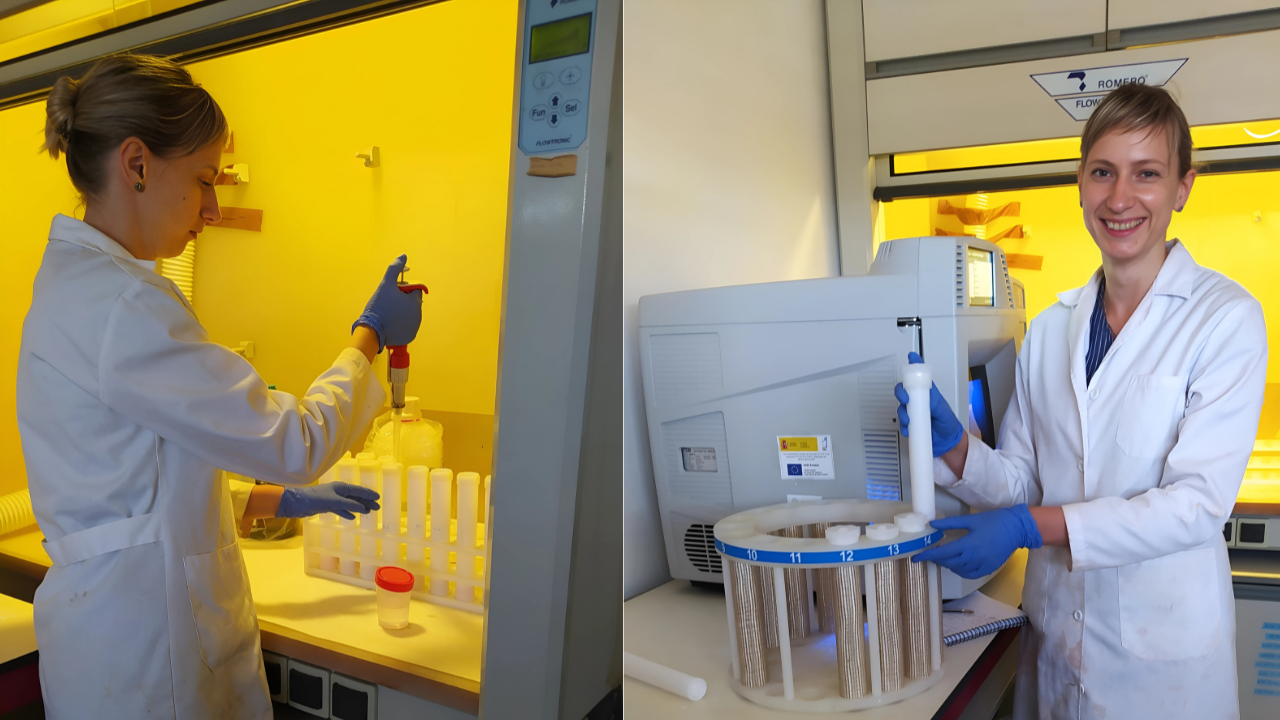BRT Senior Researcher, Assoc. Prof. Dr. Yelizaveta Chernysh recently had the opportunity to attend a training in Huelva, Spain to learn modern methods of phosphogypsum analysis with Prof. Jose Miguel Nieto Linán’s team, the Environmental Mineralogy and Geochemistry Unit, at the University of Huelva.
The teams main research activities are aimed at investigating the sources and pathways of industrial and mining pollution in terrestrial, riverine and estuarine systems. The team is consistent of an interdisciplinary team with expertise in mineralogy, geochemistry, ore deposits, hydrogeology and ecotoxicology. They have many years of experience in studying the environmental impacts associated with the exploitation of massive sulfide deposits in the Iberian pyrite belt (found in Southern Spain). Recent projects in this area have focused on the development of laboratory tests and pilot field plants for the treatment of mining waste, the recovery of essential raw materials from mining waste, and regional studies on the dispersion and attenuation of pollutants in river and estuarine systems (Tinto, Odiel and Guadiana River basins). They are also studying the elemental composition of phosphogypsum.
The training, which was partly motivated by the environmental contamination in Huelva, where waste infiltrates local water systems, gave Dr. Chernysh the opportunity to broaden her expertise in addressing such environmental issues. Specifically, she conducted sample preparation of Ukrainian phosphogypsum. In addition, she familiarized herself with the inductively coupled plasma (ICP) analysis protocol—a powerful technique used for detecting and measuring the concentration of metals and non-metals in samples. Moreover, Dr. Chernysh participated in actual sample analysis during the training, contributing to data that will inform future research. This data will play a vital role in the preparation of a scientific article, showcasing her growing expertise in this field and her contribution to important environmental research.
Thank you to Prof. Jose Miguel Nieto Linán and his research team for providing support and equipment for the training and we look forward to future collaboration!
This cooperation is based on the joint ERA-MIN3 action project - Phosphogypsum Processing to Critical Raw Materials (PG2CRM), which received funding from the European Union within the Horizon 2020 program. This training exists within the framework of the project "Phosphogypsum as a mineral resource for bioprocesses". Dr. Chernysh also acknowledges the support of the Marie Skłodowska-Curie Postdoctoral Fellowship (MSCA-PF) with funding from the European Union under the MSCA4Ukraine framework.
For more details on BRT activities, subscribe to our newsletter or follow us on social media for regular updates and highlights.


